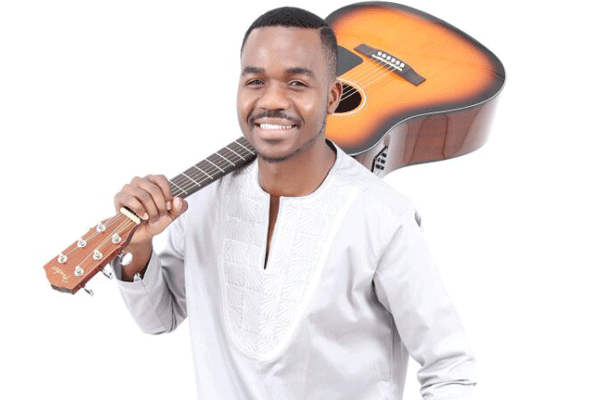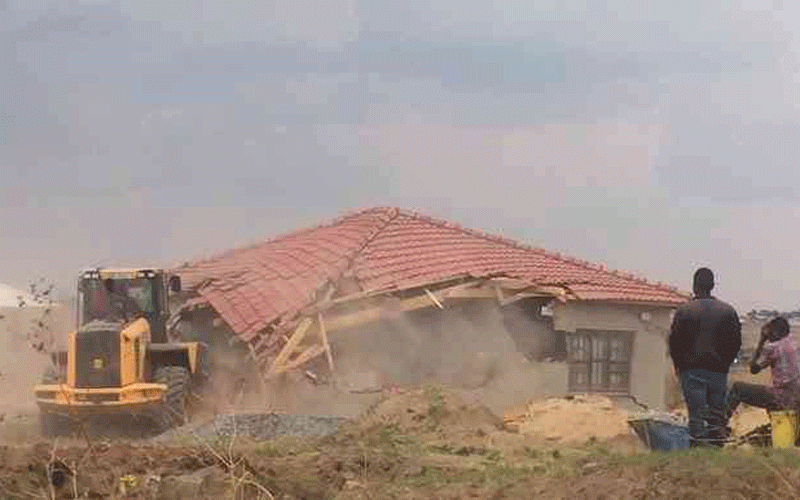
Bulawayo-born artist Bothwell Nkomo, popularly known as Bozoe in music circles, is set to make waves on the local and regional front as he shares his life experience through his new single Bekezela. The Standard Style (SS) caught up with the South Africa-based crooner (BN), who shared his experiences in the dog-eat-dog showbiz industry. Below are excerpts of the interview.
By Staff Reporter

SS: Who is Bozoe?
BN: Bozoe is an international Afro jazz artist, humanitarian, vocal trainer, father, husband, son, brother and child of God.
SS: When did you discover that you had a music talent and how did you nurture it?
BN: Having grown up in the rural areas of Gwanda being brought up by devout Bretheren in Christ Church grandparents, I often found myself singing to all my grandmother’s favourite hymns. I soon became the song bank of the family, leading all songs during prayer and thanksgiving sessions. This phenomenon later spread to my primary school years where I would recite poems and lead songs. I was even elected into the delegation that had to learn the new national anthem for the school and I was just in Grade 2. Hopping from school to school, the trend continued until my secondary school years at Ihlathi in Tshabalala, Bulawayo where I had my first professional studio experience. I led the school choir into recording the first ever audio album which was titled Solibonga Ngani in 2000. This was followed by another recording project that I pioneered with the Guta RaMwari Religion Main Youth Choir. Where there was music, I was there because I love music more than food.
SS: How did you find yourself at Amakhosi? Did you take part in any of their popular productions?
BN: After completing my O’ Levels, I was introduced to Amakhosi Township Square Cultural Centre and I joined Lovescent Mhlanga’s kwaito band as a vocalist, which was under the Ziyakhipha Music stable. A year later, the iconic director of Amakhosi Township Square Cultural Centre Cont Mhlanga launched a postgraduate advanced diploma programme in Creative Arts Communications and Multimedia through Amakhosi Performing Arts Academy (Apaa) in affiliation with the California State University’s Applied Theatre Faculty led by Professor Bill Morse. About 70 of us auditioned and I made it to the 20 finalists and I graduated in 2007. We were trained more in production management and showbusiness, hence most of my former schoolmates own production houses. Gugulethu Chikura works for ZBC and has bagged two National Arts and Merits Awards for film and television production while Nonhlalo Dube is the leading woman in the theatre production of KoBulawayo. I created Bozoemusic and the Voice Lab with which I would carry through to Johannesburg. I was part of the elite cast of Mzilikazi the Musical, which was a collaboration of Amakhosi and Mbongeni Ngema’s Committed Artists; unfortunately, it never took flight.
- Chamisa under fire over US$120K donation
- Mavhunga puts DeMbare into Chibuku quarterfinals
- Pension funds bet on Cabora Bassa oilfields
- Councils defy govt fire tender directive
Keep Reading
SS: When did you leave Zimbabwe and what were the reasons?
BN: I left for Johannesburg in June 2008 with the production team of Friends of Joshua, a documentary film about the late veteran vice-president Joshua Mqabuko Nkomo. I was the spokesperson and artistic liaison. I saw it as a great opportunity to pursue my musical passion and I also wanted to meet Ringo as I was an avid follower of his music.
SS: You say you were involved in training Berita Khumalo. Please tell us how you got to know her and what was your role in her music career?
BN: Gugulethu Khumalo, also known as Berita, came to me via Facebook messaging while she was still in New Zealand with her parents. She had known me from my years as the leader of the Guta Ra Mwari Religion’s International Main Youth Choir, hence she decided to reach out. When she arrived in South Africa for training at the Walter Sisulu University, she made contact and met me in my studio. After assessing her, I gave her a slot to open up for me in one of my shows at the then popular Carlton Centre and that is where she was discovered. Up until her first album was released with the popular song Thandolwethu, she has remained the little sister to me seeking advise and exchanging ideas about the industry.
SS: According to your profile, Ringo Madlingozi is one of your mentors. How did you get to know him and what role does he play in your music career?
BN: Ringo called me to his office and assessed me for a full hour after which he asked me if I had a band of my own. I told him that I had a full piece band just like him and he said “libala ngayo”, which is Xhosa for “forget about it”. I had met Ringo via a fan who approached me after a wedding performance, pointing out that I sounded more like Ringo. After considering Ringo’s suggestion, I disbanded my group and started improving my guitar and vocal skills, performing at festivals as a one-man band, something which I find economic and positively challenging. With Ringo, we meet now and then and I often tap into his wisdom and experience, regarding various industry matters. Were it not for a booking that he already has on December 11, he would have been my guest of honour at the Bozoe Rocks 30 Concert in Sandton as he forms part of the pivotal journey of my career.
SS: What has been the highlight of your music career?
BN: Receiving an award from the International Organisation for Migration. It was an honour for my contribution to the anti-xenophobia campaign song featuring various African artists which was dubbed #Iamamigranttoo.
SS: What inspired your latest offering Bekezela and Nyalo and why should people buy the CD?
BN: Bekezela taught me to write from the heart. It was a true story as I was trapped in the agony of a long distance relationship and the only sensible thing I could say to her was to encourage her to persevere. I was trying to command the universe to shift elements in my favour to speed up days, so I could go back and see her. It became an instant hit and has remained on high rotation in Mpumalanga radio stations for five years now. Nyalo is a Swati sequel to Bekezela. It narrates the plight of the woman on the other end of the line who has patiently waited for her man who has not returned years later and she asks a heartbreaking question “Nyalo utsi ngente njani [What must I do?]”
Being an orator that I am, one should even be more curious to experience the musical version of my story-telling, hence the more reason one must buy my CD. The quality of production is on an international tip as Gauteng stations don’t compromise on quality. I had to learn the hard way when Kaya FM, a leading commercial radio station in Johannesburg, rejected my album for poor quality which prompted me to take it to SABC RBF studios for remastering and then I re-branded and re-released it as uDumo Remastered. It was successfully launched on itunes, YouTube, Spotfy, Google Play and 24, among other online stores.
SS: Artists from Matabeleland complain that they are not able to make a living out of their careers, with some legends like Lovemore Majaivana choosing to abandon music due to frustration. Do you think their complaints are justified and what could be the solution?
BN: Absolutely yes. This is due to the industry constantly evolving and keeping up is hard for many artists. We live in a digital era now and most hard copy merchandises are falling away or conforming. Our artists need more trained managers and mentors in the showbiz industry. Making it into the mainstream showbusiness is now expensive and it requires an entrepreneurial approach more than an artistic stance like back in the days. Piracy and free music downloading sites are eating away the fruits of our hard labour and an artist has to survive through bookings and those require a great deal of publicity.
SS: Being a foreigner in South Africa what were some of the challenges you faced in building your career?
BN: The stigmatisation of foreigners and the elements that come with it such as xenophobia. I was quickly adopted by the Ndebele community in Mpumalanga via Ikwekwezi FM and it made it easier for me to penetrate the market from their shielding. Mpumalanga remains the biggest consumers of my music. However, I feel had I been born in South Africa given the current progress that I am making, I could be in the same league of millionaire musicians like Dr Malinga, with whom I used to play with at Monte Casino and the Casspers.
SS: Have you set yourself any targets in your music career and if so, what are they?
BN: Bozoe Rocks 30 is the beginning of a series of self-produced shows that will coin me as the greatest Afro-jazz artist in the world, both creatively and wealth wise. My strength has always been live performances and over the past decade, I have horned super stage performance skills, a phenomenon that is rare in today’s showbiz and that is my selling point. I am already conceptualising Bozoe Rocks Valentine’s for February 2017. I will single-handedly fill up venues through these concepts and attract investors and produce numerous products under that banner. Bozoemusic is here now.











